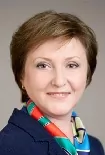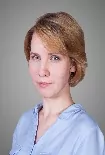Russia is getting prepared to welcome FIFA Confederations Cup 2017 and FIFA World Cup 2018. It is fair to expect football-related advert while collaboration with athletes during promotional campaigns will definitely increase.
Endorsements, use of athletes' reputation, biographical information, autographs, use of portraits, likenesses, images, trademarks during promotional campaigns is allowed to the extent permitted by applicable laws. If a sponsor deals with a Russian athlete, it is worth being aware of certain specifics of local laws, which sometimes can count against a sponsor.
Typically, name, likeness of an athlete and his/her personal characteristics are not recognized as intellectual property objects in Russia - they are recognized as non-material values, which legal regime is rather clumsy from the point of view of rights disposal and may result in difficulties to ensure proper and risk-free use of such objects in promotion.
The court attempted to draw a line between intellectual property objects and non-material values. The following features single out non-material values: an object has no material basis, cannot be evaluated monetary, and is indissolubly related to the person, which makes such object non-transferrable1. Practically speaking, non-material values are related to a real person rather than connected with an artistic or public side of his/her life (e.g. a nickname might be deemed a copyright object). Understanding of the legal nature will give you a head start and enable to make an enforceable deal with an athlete.
A basic rule governing use of any object states that any use should be authorized by a right holder. As to non-material values, a tricky moment to remember is that a person has the right to recall his/her consent anytime; waiver of this right is not enforceable.
Usually authorization to use personal characteristics of an individual are set forth in a sponsoring or similar agreement, which covers almost all scenarios of promotion. One of the key questions with respect to such agreements is the question of who should act as a party to such agreement.
Non-material values are non-assignable, thus, it is always an athlete who possesses all rights and is entitled to permit use of his/her likeness or images rather than a club of the athlete. Obtaining an authorization from a club is possible while the scope and extent, however, depends largely on the terms of the contractual arrangement between the club and the athlete. The court recognizes such possibility, e.g., when an athlete granted to a club rights to use his/her likeness, name and surname, signature and handwriting, photos and other objects owned by such athlete under the contract2. Therefore, it is recommended to review the scope of rights granted by an athlete to the club in order to get a valid and/or non-restricted authorization. At the same time, to mitigate potential risks it is safer for a sponsor to enter into direct relations with an athlete to have a proper authorization and indemnities.
Additionally, some of the non-material objects might still be protectable as copyright objects or even trademarks. Nowadays it is more and more often among Russian athletes to register their name as trademarks: a Russian football player Andrey Arshavin3, a gymnast Alina Kabaeva4 and a hockey star Pavel Bure5 are already on such list. The advantage of such registration is that the terms of granting the rights may be defined more precisely in a license granted to a sponsor with respect to particular goods and/or services.
Likeness disputes for the time being are not so widespread in Russia if compared to other jurisdictions, which may be explained by a weaker capitalization of Russian athletes' brands although this could change in view of the coming sport events.
Footnotes
[1] Ruling of the Federal Arbitrazh Court of Moscow District of November 19, 2008 on the case No. А40-26824/07-27-240.
[2] Ruling of Plenum of the Supreme Court of the Russian Federation of November 24, 2015 No. 52.
[3] Trademark No 421510
[4] Trademarks No. 440366, 457160.
[5] Trademark No. 276863.
The content of this article is intended to provide a general guide to the subject matter. Specialist advice should be sought about your specific circumstances.


